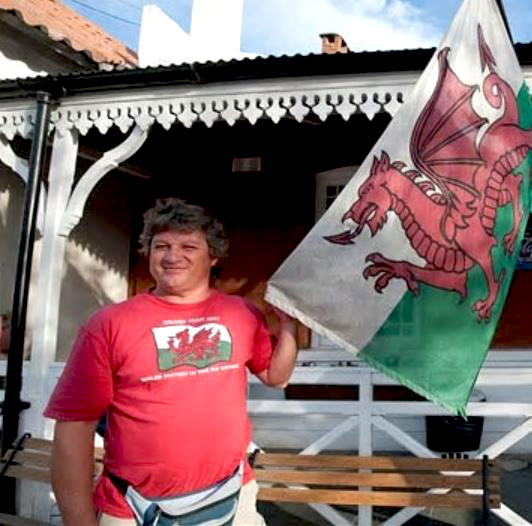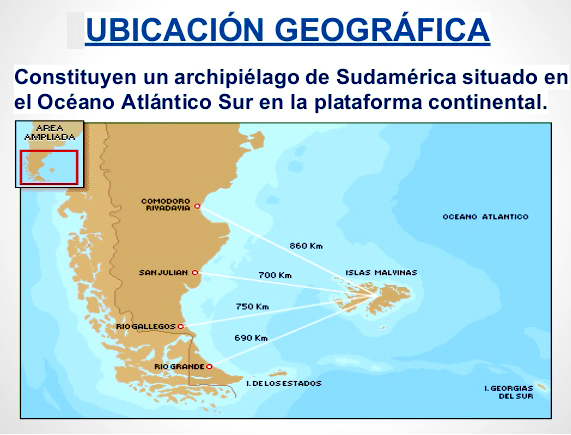I first became acquainted with Jeremy through my old mate, the late Rhobert ap Steffan, known to the inner circle as ‘Castro’, who made a number of trips to Patagonia. I’d known Rhobert for many years, we spent the Investiture period in ’69 with a couple of other young rebels in Ireland.
We had a great send-off on the Swansea-Cork ferry from our Special Branch ‘tails’ (we each had two), who didn’t believe we were going. They followed our car in a convoy down to the docks, boarded the ferry, even bought us drinks, and then waved good-bye from the quayside as we sailed off.
God! it was a touching scene. Them: ‘The bastards really are going’. Us: ‘F### off, copper!’ Ah! Happy days!
But enough nostalgia. First, a biography of our guest writer, Jeremy Wood, and then he’ll bring you up to speed with events in Esquel, Trevelin, Ysgol y Cwm and Bodega del fin del Mundo. (Ahhhh . . . Malbec!)
◊
JEREMY WOOD
Jeremy Wood is one of the best-known authorities on Welsh Patagonia (to the extent of sometimes being referred to as ‘Mr Patagonia’). He lives in the home town of his Esquel-born wife, Cristina, and young son, Tomos. He is on the committee of the Welsh Society in Trevelin and is actively involved in fund-raising for the town’s Welsh school, Ysgol y Cwm.

He featured extensively in Jon Gower’s 2015 book, Gwalia Patagonia, the sales proceeds of which have been generously dedicated to Ysgol y Cwm. He is involved in numerous projects relating to Patagonia and to the Welsh in Patagonia, about which he writes regularly for newspapers and magazines in the UK and the United States.
Jeremy has also contributed important, newly-discovered archive material to the Welsh museums across Patagonia, including a long lost manuscript regarding the murders of 3 young Welshmen in 1884 by John Daniel Evans, and has recently published a book on that tragedy.
He is also involved with film, writing Esquel (20:35) as part of the programme of twinning with Aberystwyth (which he initiated and completed). Jeremy also worked with Matthew Rhys to produce a Spanish version of Hollywood Gaucho. While as a film historian he has unearthed from the BBC archives 22 films made prior to 1980 about the Welsh in Patagonia and not previously seen in Patagonia.
He was asked by the producers of the Oscar-nominated film, Patagonia, to develop a special tour of Patagonia which follows in the footsteps of the film. He was the Patagonia-based ‘fixer’ for Huw Edwards’ Patagonia documentary released by the BBC in 2015. He has a special relationship with the Palaeontological Museum in Trelew, featured in David Attenborough’s 2016 documentary about the largest dinosaur (and animal) ever to have walked the Earth.
Away from movies and television Jeremy organises tours of Patagonia for small and large groups and has organised several musical tours, including two sell-out concert tours for tenor, Rhys Meirion.
Fittingly, he was one of only 30 Patagonians honoured to have been chosen to re-enact the landings of the first Welsh settlers in the 150th Anniversary celebrations in Porth Madryn in 2015.
Jeremy is a New Zealander and has studied Welsh at Ysgol Gymraeg yr Andes, the Welsh school in Esquel.
◊
WELSH LANGUAGE IN PATAGONIA SHORED UP WITH EIGHT-INCH NAILS
Hoelion Wyth is a Welsh phrase for somebody who can be relied upon. It literally means an eight-inch nail, which was the longest nail used in the construction of chapels in Wales and, as such, had to be very strong and reliable. It is also the name of a Welsh society whose motto is “Nid rhwd anrhydedd hoelen”, which means, more or less, “A nail doesn’t wear rust with honor”.
Hoelion Wyth is a society to which honor and trustworthiness are very important. It was founded many years ago and the members (about 200 people) meet every month throughout Wales to enjoy wine and conversation. They regularly invite people with an interesting story to tell to attend their meetings and speak to them.
In 2015, I had the pleasure of taking 4 of their members for a trip around Chubut, the Argentinian province where all the Welsh towns and communities lie. In anticipation of their love of wine, I loaded 14 cases of Patagonian wine into my Toyota 4×4 and we travelled from Puerto Madryn on the Atlantic coast to Trevelin in the Andes for two weeks, meeting many members of the Welsh community, visiting homes, farms, schools and cemeteries, travelling to some of the most remote corners of Chubut to see our national parks, glaciers, deserts, geology and dinosaurs. And, with each Welsh Patagonian experience, we enjoyed Patagonian wine.
All my passengers were/are fluent in the Welsh language and use it in preference to English when they speak to each other. Outside Wales, the only place in the world where the language is still spoken is Chubut. Therefore, the most emotional moments we shared during our trip were when we met Argentinians who spoke Welsh and when we visited schools in Patagonia to see children learning and speaking Welsh.
Our visitors understand that the Welsh language is endangered in Chubut and that no money is available from any official source in Chubut to pay for Welsh schools. Therefore, when they returned to Wales, they talked about how they could combine the interests of their Society with the strengthening of the Welsh language in Argentina. The magic formula was then invented – to import wine from Patagonia to sell in Wales (and the rest of the UK) and to donate all the profits to our school in Trevelin, Ysgol y Cwm (which means School of the Valley). At that time, in the early days of the project, they bought the wines from importing agents in Wales and added labels around the necks of the bottles to demonstrate the connection with the Welsh School in Patagonia. To date, they have already raised over $15,000 and haven’t taken a penny in profit themselves.
The group has just visited Patagonia again (much to the regret of my liver) and, on this occasion, we visited the Bodega del Fin del Mundo (literally, the Vineyard at the Bottom of the World), a Patagonian estate of almost 5,000 acres of 12 different grape varieties and with a production capacity of over 10 million bottles per year.

We spent the day with Julio Viola, the son of the founder of the vineyard, who insisted that we try over 30 different bottles from the estate, ranging from delicate champagnes to raunchy reds, and that we explain in more detail about the Welsh language still spoken in Trevelin (a few hundred kilometres south of the vineyard) and how the vineyard could help us raise more money for Ysgol y Cwm.
We left many hours later, most on wobbly legs, with a commitment from the vineyard to look seriously into a production run in Patagonia of a Malbec/Cabernet Sauvignon blend with a label, in Welsh, explaining the presence of the Welsh language in Argentina and the continued teaching and promotion of it at Ysgol y Cwm.
For more information on the wine, please contact John Watkin – jobawat1@gmail.com
◊
YSGOL Y CWM
The first Welsh settlers arrived in Patagonia in 1865. In 2015, we commemorated the 150th anniversary of their arrival and there were celebrations throughout Chubut. In 2013, the Welsh communities in Esquel and Trevelin met to decide how they would celebrate 2015. (I live in Esquel and I am a member of the Committee of the Welsh Society in Trevelin.) I suggested that we should not plan to do many things, but that we should plan only one thing and that we should concentrate all our efforts to do that thing very well. At that time, children and adults received their Welsh lessons by visiting classrooms in Esquel and Trevelin, but we did not have a full-time school. We decided to build a bilingual Welsh/Spanish school for children between 4 and 11 years of age! The school would teach the Argentine national curriculum in Spanish and Welsh!
The Governor of Chubut (Martin Buzzi) at that time promised to pay about half of the costs as part of his contribution to the 150th Anniversary celebrations. Of course, he paid nothing. Mario Das Neves, the next Governor, also paid nothing. The National Government of Cristina Fernandez paid nothing and the current National Government of Mauricio Macri paid nothing. In fact, the Minister of Education in Macri’s government said that it was the national policy not to support bilingual schools.
The Welsh Society in Trevelin owned some land near to the centre of the town. It decided to divide the land into building plots and sell the plots to raise money to build the school. It did not expect to sell all the plots immediately and therefore asked an Argentine-Welsh architect from Esquel to design a school which could be built in stages – a few classrooms at a time. As it sold more land, it could build more classrooms. Of course, it didn’t anticipate how quickly the Argentine peso would go down and how quickly inflation would increase. But, despite all these difficulties, the school was opened on time in 2016 with the first class of children. Each year since, it has introduced another class. In March 2019, it will introduce another class and open the 5 new classrooms, which are nearing completion (at the moment, the Welsh Society does not have enough money – about 5,000 dollars – to pay for a boiler, so there is a chance that the very picky Argentine inspectors may delay the opening).
Trevelin and the Welsh community in the Andes now have a nursery school and a junior school, which are recognized by the Chubut government and which are regularly inspected. The project has been so successful that it has a waiting list of parents who wish to send their children to the school. The reason for its success, despite being a fee-paying school, is that the school has “old-fashioned” values, that its teachers are committed and passionate and that it is not influenced by the politics of education at a national or provincial level. The majority of children who attend the school have no Welsh blood, but their parents recognize the above benefits, plus the internationally acknowledged merits of a bilingual education (irrespective of what the languages are).
The business model for the school is that the Welsh Association raises funds for construction and it provides the school buildings to a separate legal entity which operates and runs the school. This entity pays all the running costs, pays the teachers and collects the fees from the parents and from adult learners, who use the school facilities at evening classes. The school also receives assistance from the Welsh government, which provides the services of a Welsh teacher on a half-time basis (the other half of the teacher’s time is spent in nearby Esquel). However, the school receives virtually no financial support from the government in Chubut, which pays for one administrator and for 22 hours of teaching per week.
In 2018, the school employed a teacher from Wales, paid for from its own funds, and provided accommodation for her and her family. In 2019, an additional teacher from Wales will be recruited and paid for by the school. Your correspondent opened a bank account for the school in London and it receives money from supporters across the world in the form of standing orders and one-off donations. Trevelin is twinned with Aberteifi/Cardigan and they also hold fund-raising events for the school.
When the group from Hoelion Wyth came to the school, the children welcomed them with songs in Welsh and the ceremonial raising of the Welsh flag.
The Welsh society is now preparing another piece of land for sale to build houses. With the money received, it is planning the final phase – a small (400 seats) concert facility for use of the school and a permanent home for the annual Welsh festival, the Trevelin Eisteddfod.
For more information, please contact jeremywood@welshpatagonia.com
♦ end ♦















